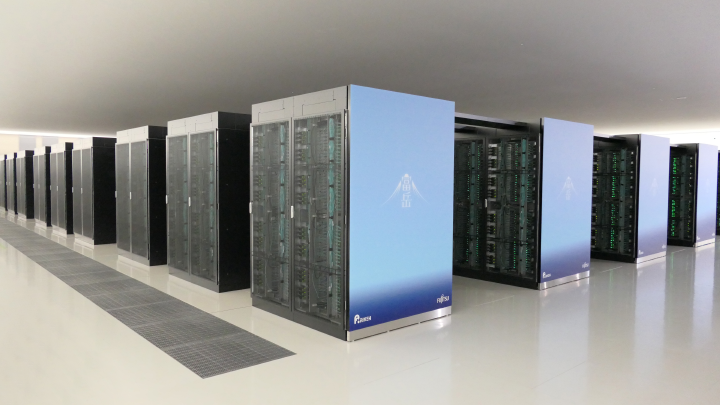For those looking to try out Fujitsu’s Arm-based PRIMEHPC FX1000 system, the company is opening up the same capabilities via its own cloud service.
Access to the Fujitsu A64X-based systems, which are at the heart of the top-ranked Fugaku supercomputer in Japan, will begin in October in-country, with global rollout to follow, although Fujitsu has not provided timeline specifics. This is an important native addition to the Japanese cloud market for HPC and other demanding applications, including AI training and inference. The addition of the company’s Digital Annealer (a quantum simulation platform) will be added in later.
As of now, Japan relies most heavily on global cloud providers, including Google Cloud, AWS, Microsoft Azure, and a few other smaller players, many of which are also global. International Trade Administration (ITA) figures project solid growth of Japan’s overall cloud market with 19.5% annual growth from 2020-2025 with an almost 2.5X leap in market size to $23.5 billion by 2025.
The ITA says AWS has 40.3% of that share, Microsoft Azure 26.3% and Google Cloud with 13.5%, representing an almost 80% lockdown on the cloud market by U.S. based companies.
While it is not likely a high-end focused cloud service will topple major market share, especially since Fujitsu already has its own general purpose cloud service, it is big news for HPC in Japan. All three major global cloud providers have bolstered their hardware and software for HPC users but having a Japan-native alternative will likely be an appeal, as will allowing users to experiment with the energy efficiency and performance benefits of the Fujitsu A64X processor, which we have covered in some depth.
Another reason having this available in a cloud environment is to allow HPC users previously focused on X86 and CUDA cores, for instance, to take their fussy HPC codes for a spin with the new software stack and architecture, a process that has been challenging for some. While the Fugaku supercomputer is humming away, a number of institutions, including some in the U.S. are focused on assessing the advantages, including Brookhaven National Lab, which has been testing the architecture on key HPC applications to see scalable performance despite some code gaps.
One of the most noteworthy individuals behind the initial deployment and ongoing use of the Fujitsu PRIMEHPC FX1000 nodes is RIKEN Director, Satoshi Matsuoka. He says that over the last two years 149 companies have used the Fugaku supercomputer across 48 industrial use cases, including manufacturing. “We are working with Fujitsu to make its [Fujitsu Computing as a Service, or CaaS] to be highly compatible with Fugaku to support such requirements, and we expect CaaS to become an important service for quickly connecting R&D on Fugaku to industrial use and practical implementation in society. Moving forward, we will collaborate with Fujitsu to further synergize Fugaku with this new service to provide its capabilities seamlessly in the cloud,” he adds.
Compared to a more general purpose cloud provider, Fujitsu is taking a service-oriented approach, which bundles many of the services to keep them manageable, something we expect is necessary given some of the uncharted waters application porting-wise some HPC centers face with porting and running with high utilization. These include:
-
On-demand HPC services for access to high-performance computing at any time. Here, compute nodes, login nodes, job scheduler, storage, and application software for HPC are set up in advance (users do not have to build their own HPC environment and only need to prepare data needed for their analysis). As with all cloud models, users pay only for what they need
-
Professional operational and technical support to ensure ease of use: Technical support based on Fujitsu’s decades of operational expertise in high-performance computing, including knowhow gained through the development of the supercomputer Fugaku (support customers without pre-knowledge to derive maximum benefit from HPC through support in software and library installation and tuning services). Development of HPC utilization plans tailored to customers’ business plans
-
High compatibility with supercomputer Fugaku to accelerate R&D and deployment of cutting-edge technologies in society. Simple transfer of research results generated on supercomputer Fugaku to CaaS services to accelerate practical application in society (CPU, job scheduler, file system, compiler, application software, and API common to Fugaku are available). Users planning large-scale analysis and research projects are able to migrate to Fugaku in the future with the same operability
Fujitsu is bundling all of this under its “Uvance” brand. The company adds that it will draw on CaaS to promote the commercial use of a range of advanced computing technologies, which have until the present been largely limited to applications in an academic context due in part to prohibitively high investment costs and implementation and operational loads.

